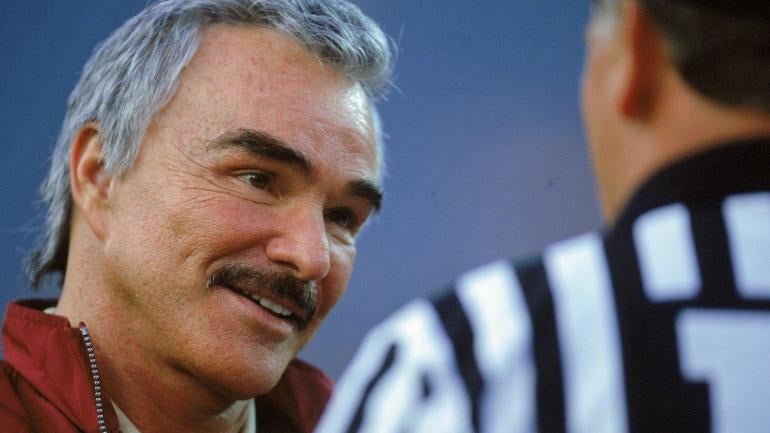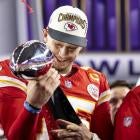
Legendary actor Burt Reynolds died on Thursday at the age of 82. Reynolds was one of Hollywood's top leading men in the 1970s, starring in hits such as "Smokey and the Bandit," "Deliverance" and "The Longest Yard," and later "Boogie Nights."
Reynolds will mostly be remembered for his contributions to film, though he also had a pretty significant impact on the sports world. After graduating from high school, Reynolds earned a football scholarship to Florida State University as a halfback.
In his first season with the Seminoles, Reynolds ran for 134 yards and two touchdowns on 16 carries. He also reeled in four catches for 76 yards. He had a promising future with the program, but he suffered a knee injury in the Seminoles' first game of his sophomore season, then later that year suffered another knee injury and lost his spleen as a result of a car accident.
That stretch of bad luck kept him off the field for two years before a short-lived return. The injuries ultimately brought his football dreams crashing down, but it would turn into a blessing in disguise.
While attending Florida State, Reynolds roomed with one Lee Corso -- the famed college football broadcaster who remains a staple of "College Gameday." They remained friends long after they parted ways on campus.
As Reynolds' acting career picked up steam, he managed to earn parts in some of Hollywood's more famous sports movies -- including the lead role of Paul Crewe in "The Longest Yard" in 1974, as well as a supporting role as Coach Nate Scarborough in the 2005 remake starring Adam Sandler.
Reynolds also played a starring role in the 1977 football movie "Semi-Tough," which co-starred Kris Kristofferson. Additionally, he had roles in the 1993 baseball film "The Man from Left Field" and the 1999 hockey cult classic "Mystery, Alaska."
His presence in sports wasn't just felt on the silver screen, either. Reynolds continued to support Florida State after becoming a big-time Hollywood star and was often spotted on the sidelines or in the stands during gameday. He also supported the program financially, making donations to help buy uniforms and endow scholarships.
Burt Reynolds used to love to tell the story of how Bobby Bowden knew his name — “Buddy.” It wasn’t until later that he realized Bobby Bowden called everyone Buddy. RIP, Buddy. pic.twitter.com/zmbqAH50pT
— Tim Linafelt / FSU (@Tim_Linafelt) September 6, 2018
He was also a minority owner of the Tampa Bay Bandits, a short-lived USFL football team that operated from 1983-1986, coached by Steve Spurrier.

















